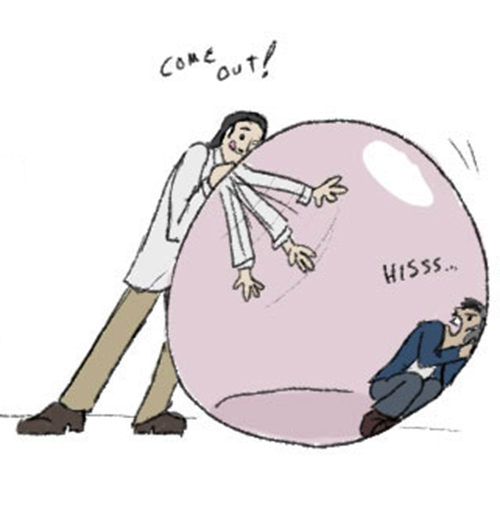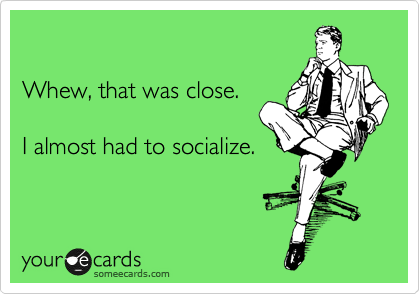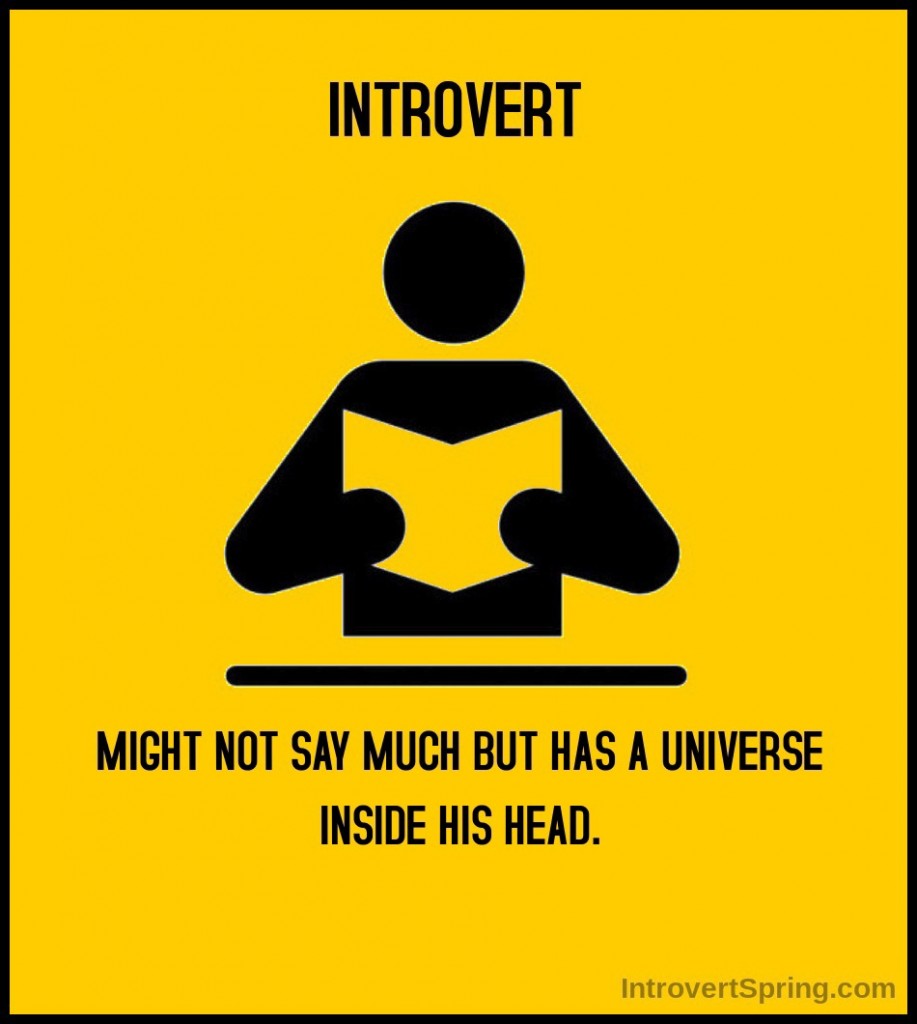So for those of you who do not know me well enough, I am an introvert. For most people this translates as meaning, “she hates people, she’s quiet, and she does not like to go out.” Well luckily for all the other misunderstood introverts out there, I am dedicating this week’s blog post to deconstructing this introvert myth and providing concrete strategies for how to best network as an introvert.
Contrary to popular belief, introverts do not hate people. I actually really love hanging out and getting to know people. Nevertheless, what is most misunderstood about introverts is that large numbers of people can be overwhelming to our sense of balance. So in order to regain that balance, we need alone time. One of the defining characteristics of an introvert is that they derive a lot of their energy from being alone. They really need quality time by themselves every once in a while to recharge their batteries. Then once recharged, they can be a total social butterfly.
So when it comes to networking, it is not so much the act of going to a networking event that is an introvert’s worst nightmare; it is more what the act of networking can feel like that bothers most introverts. I always find it funny that introverts’ silence is taken as a lack of something to say. For me, at least, it is not that I am quiet or do not like to speak, but rather that most introverts prefer listening to talking. Talking for long periods of time, especially about the same thing over and over again, can drain us very quickly. Unfortunately, talking comprises a lot of what networking is. But if all you introverts can hang on until the end, I promise I will equip you with some start off networking questions that will keep your networking partner talking all night long, and help you regain some energy.
One of the last points I will make about introverts’ fear of networking is the sense of fakeness that networking can have to it. With a well-charged introvert, there is a lot of energy surging through their veins. However, introverts are also aware at how quickly this energy can dissipate in a large room of people, so they like to choose wisely where they will invest all this energy. If you were to ask an introvert to choose between having a really in-depth conversation with one or two people, or to meet over 50 people in one night, you better believe that any true introvert would choose the former over the latter. Unfortunately with networking events, you might have to sift through a lot of “fake” conversations in order to make it to that one really useful one, and by then you could be energy depleted.
So how do we as introverts conquer our networking fears? Well here’s what you all have been waiting for! This is some my personal list of strategies to becoming an introverted networking queen (or king).
- Ready, Set… Charge!
You would not go to a networking event with a cell phone battery that was less than 50%. So why would you ever go with less than 100% of the best version of you? Make sure that prior to a networking event you take all the time that you need to really get in the zone to talk to a bunch of random people all night. This will require you being more on top of your schedule and knowing when events are occurring. But even if you end up going to an event on the fly, and you know your slightly drained, remember that it never hurts to take breaks and go outside or, my personal favorite, go on Pinterest to give yourself a quick zap of energy.
- Work Smarter, Not Harder
Sure, you’re supposed to meet a lot of people at networking events. But why sift through tons of people who might not help to advance your career when you do not have to? While networking events can be somewhat unpredictable because you never really know if the person/organization who says they are coming will actually show up, it can work in your advantage to find out the guest list ahead of time and do a little background research on the guests. By doing this you will already know the names/organizations that will be the best match to your skill sets, and you will not have to waste time and energy sifting through people who would not be helpful to you. Knowing who your talking to can also help add a layer of genuineness to the conversation, while also helping you feel more comfortable with whom your talking to. Not to mention that most people do not take time to do this, so you will definitely be the most memorable of the bunch.
- Ask, Listen, Pause, Repeat
Pauses in a conversation can be the most terrifying thought to some people. For me, however, I love pauses because it gives me a chance to formulate a new question to ask that leads off of the other person’s following statement, keeping the conversation fresh and authentic. While it is important to have a repository of reliable networking questions to ask, you should never just completely just rely on these questions alone because it can come off as mechanical and kind of cold. Instead, I would recommend starting with one of your formulated questions, really listening to the other person’s response, taking a breath to comprehend what was just said to you, and then see if there is a follow up question you can ask about what they just said.
Here are some questions that I like to keep in the back of my mind:
- Can you describe to me what your career path was from after you graduated college to now?
- Did you always know that you wanted to be in X industry or what sparked that change in your life and why did you decide to act on it?
- Are you in your dream position now or where would you like to be in the next 5 years/at the end of your career?
I hope I helped some of you introverts out there get some courage about networking. Did this post make you re-evaluate whether or not you’re an introvert or an extrovert? Well you should stop by CP&R to take the Myers-Briggs Personality Assessment! It is really beneficial to know as much about your personality as you can so that you can strategizes ways to cater certain things like networking to your favor.





